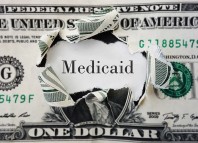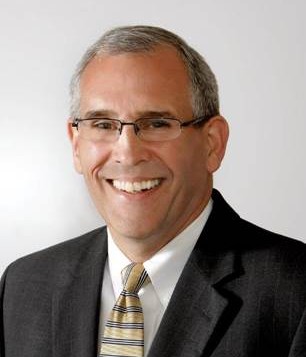Treasury sending out $3.3 billion in payment to schools, counties, and human services organizations
State Budget: Christmas Present or Lump of Coal?
House Looking to Pass Stopgap Budget
State Budget Deal in Shambles
Over the weekend, the House failed to pass SB 1071, which is the hybrid pension bill, by a vote of 52/149 with no support from the Democratic Caucus and over 60 Republicans. After the vote, numerous meetings were held among leadership. Once the meetings concluded, the House floated the possibility of forging ahead with some type of stopgap measure that would fund education and human services. However, the governor and Senate leadership indicated that a stopgap budget was a non-starter.
House Republican Leaders Give Ultimatum to the Governor
House Republican leaders told Governor Wolf he has 24 hours to prove that he has enough votes in the House to pass a spending and tax proposal he supports. If he cannot show he has the votes, House Republican leadership said they will propose a stopgap funding bill to end the state government’s five-and-a-half month budget stalemate.
According to House Majority Leader Dave Reed, he wants to hold final votes this weekend. As of today, the governor, both caucuses in the Senate, as well as House Democrats, support the $30.8 billion budget as well as the $1 billion-plus tax plan. The House Republican majority wants a pared down $30.2 billion budget which would include smaller spending and tax increases.
It should be an interesting day at the Capitol. The governor must have all 83 (Rep. Louise Bishop resigned on Wednesday) of the House Democrat Caucus be in favor of the budget – to date, not all members of the Democrat Caucus have supported the governor’s budget proposal. In addition, the governor would have to pick up between 20 and 30 Republican votes, depending on whether members of his own caucus go against him.
Stay tuned! RCPA will continue to provide updates on the budget. RCPA encourages members to continue to contact the governor and state legislators to inform them why it’s necessary for them to pass a state budget sooner rather than later. Questions, contact Jack Phillips.
State Budget in Hands of the House
It is 168 days into the state budget impasse and things are still moving at a glacier’s pace. The PA Senate is upset with the House, because many House Republicans are not in favor of a $1.2 billion tax increase.
State Budget Update
This article from Capitolwire is a good and extensive overview of what is going on with the budget here in Harrisburg. Health and Human service budget line items are still fluid until the House and Senate negotiate a final budget deal. RCPA will provide updates on any budget deal, and RCPA encourages members to continue to contact the governor and state legislators to inform them why it’s necessary for them to pass a state budget sooner rather than later. Questions, contact Jack Phillips.
CCAP Exploring Legal Options to End State Budget Impasse
Today, the County Commissioners Association of Pennsylvania (CCAP) sent out a press release, stating that the organization has authorized their counsel to explore options to end the current six month state budget impasse, and to prevent future threats to key human services programs provided at the county level. CCAP will have legal counsel research potential litigation options against the Commonwealth regarding the release of state and federal monies for essential services.
OMHSAS Briefing on ABA Services
On November 23, the leadership of the Office of Mental Health and Substance Abuse Services (OMHSAS), including Deputy Secretary Dennis Marion and Medical Director Dr. Dale Adair, provided a webcast presentation on the development of Applied Behavior Analysis (ABA) services for children with an Autism Spectrum Disorder (ASD). The webcast to more than 130 RCPA members reviewed the current concepts and recommendations developed by a clinical work group, assisting OMHSAS in the development of ABA medical necessity guidelines, clarifying the authorization pathway for Behavioral Health Rehabilitation Services for children and adolescents diagnosed with Autism Spectrum Disorder.
Potential Budget Deal in the Works
According to sources, it appears the caucuses have a framework in place for the 2015/16 state budget. The proposed plan would spend an additional $350 million for basic education, an additional $50 million for special education, and a 5 percent increase in funding for higher education.
In the potential budget deal, there will be additional property tax relief. Terms were still being negotiated on how the additional education funding will be distributed. Additionally, officials are trying to impose caps on how much school districts can raise property taxes in the future.
The potential budget deal would include:
- An increase in state spending up to $30.7 billion; that would be a 6 percent increase from last year’s approved budget.
- $500 million in slot-machine gambling revenue that is currently passed along to homeowners as school property tax cuts. That money would be diverted into a restricted account to pay for public school employee pension obligations.
- The loss of the slot-machine money for school property tax cuts would be replaced by about $2 billion expected from a state sales tax increase to 7.25 percent, up from the current 6 percent. The rate would rise to 8.25 percent in Allegheny County, where it is currently 7 percent, and to 9.25 percent in Philadelphia, where it is currently 8 percent.
The proposed budget would not include a new tax on Marcellus Shale; however, a cigarette tax and a tax on banks were still being discussed as potential revenue enhancements. Currently, there has been no specific mention of dollar amounts for health and human services, or providers being reimbursed by the Commonwealth for interest payments being made on loans that providers took out to continue health and human services.
Despite a possible agreement, legislators are still cautious about any last minute hiccups that might derail a potential budget deal. The budget deal could blow up if the governor and legislators cannot come to terms on how new money for schools and property tax cuts would be distributed to each district, and how to further limit the ability of school boards to raise taxes as part of the package of new money.
Some of the other budget highlights include:
- On pensions, the traditional pension benefit would survive, but newly hired public school and state government employees would get a diminished traditional pension benefit, plus a new, 401(k) style plan with a 2 percent contribution. According to estimates, this plan would save the state $12.5 billion in the coming decades.
- Changes to the state-controlled wine and liquor system were still under discussion, although the sides have agreed to make it part of an overall budget deal.
RCPA will provide updates on any budget deal, and encourages members to continue to contact the governor and state legislators to inform them why it’s necessary for them to pass a state budget sooner rather than later. Contact Jack Phillips with any questions.











